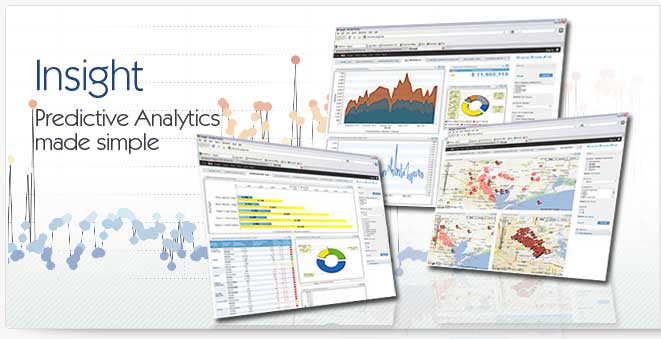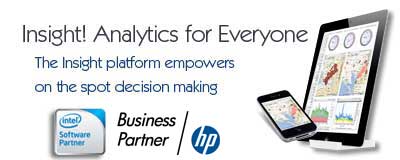Data Warehousing Software
Data warehousing software refers to the collection of software tools
and applications needed to create a data warehouse, often for the purposes
of business intelligence. Data warehousing software can encompass
a wide range of applications and products but is most often associated
with the database that will be used in the data warehouse and the tools
that will be needed to integrate the warehouse with other in-house
systems. Data warehousing software is in essence the tool-set
needed to build data warehouses. Due to the complexity and often
the costs associated with data warehousing software companies will
often outsource the use of data warehousing software to resellers (VARs)
or to third party suppliers who are experts in the use of data warehousing
software.
Can My Business Use Data Warehousing Software?
While the short answer to that question is yes, the better question
might be, should my business use data warehousing software? It's
important to distinguish from the benefit of having a data warehouse
vs. the benefit of having the data warehousing software in-house that
will be necessary to build out the system. While there are a
number of possible components associated with data warehousing software,
two elements are critical and must be present - a core database that
will be used to store data and a data integration tool that will integrate
the data warehouse with other in-house systems. From a basic
management perspective, having familiarity with how your data warehouse
operates is important, but as a business you may have to decide your
need for data warehousing software based on whether your use of a data
warehouse will be critical to the organization vs. just informational.
Risks Associated with Data Warehousing Software
In order to make a more informed decision on your need for data warehousing
software, you should first understand the risks associated with bringing
the necessary knowledge in-house to use data warehousing software. The
biggest difficulty most companies face when dealing with data warehousing
software is lack of domain expertise. More specifically, in order
to use data warehousing software your business is going to need to
build up the talent pool of individuals who have used data
warehousing software in the past and can help you manage the development
and maintenance of your data warehouse. While accessing this
type of talent is not difficult, having the company infrastructure
and mindset to take advantage of expert data warehousing software developers
can be very challenging. In order to alleviate some of these
risks your business can look at another option - outsourced data warehousing
software developers - typically consultants - who can work with your
business on an ad-hoc basis to develop your data warehouse. With
outsourced data warehousing software development you get the benefit
of the experience of the consultants without the associated risk that
comes with hiring, training and maintaining a dedicated workforce.
Benefits of In-House Data Warehousing Software Development
While there are risks associated with in-house data warehousing software
development there are also benefits, especially when compared to outsourced
data warehousing software development. The primary benefit is
the retention of domain knowledge. As your business grows your
needs for data warehousing software work will increase as well. Having
dedicated staff that can quickly and easily modify your data warehouse
can be a significant help in ensuring that your data warehouse is updated. Having
to hire data warehousing software development consultants each time
this type of work is needed can become very costly very quickly. Beyond
the long-term benefits of in-house data warehousing software development
is also the benefit associated with knowledge transfer. More
specifically, over time you will find that it's always easier to translate
business requirements into development requirements when dealing with
in-house staff than with outside consultants.
Should You Use In-House or Outsourced Data Warehousing Software Development?
So which model is right for your business? The answer may be
both. For many organizations outsourced data warehousing software
development is an ideal model to start with. It allows the company
to benefit from employing a data warehouse without having to make the
up-front investment in staff and training. Over time your business
can transition to in-house data warehouse software development and
being to realize the long-term benefits of bringing the knowledge-base
in-house.
|



